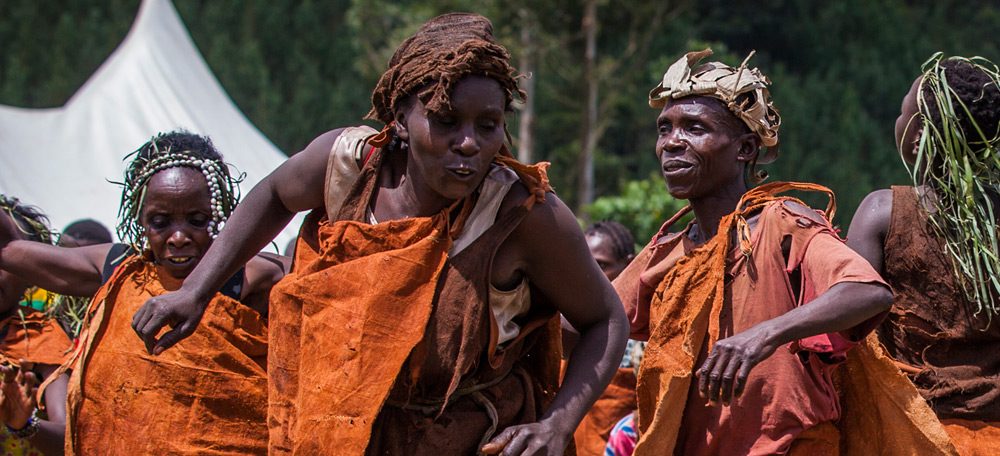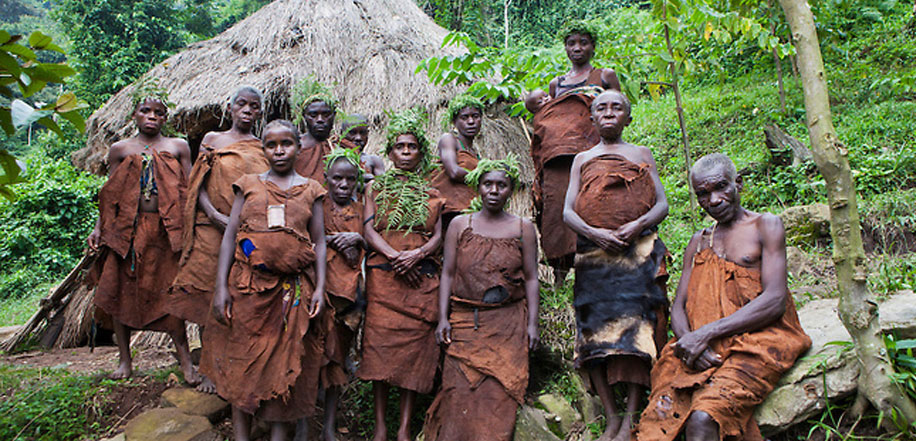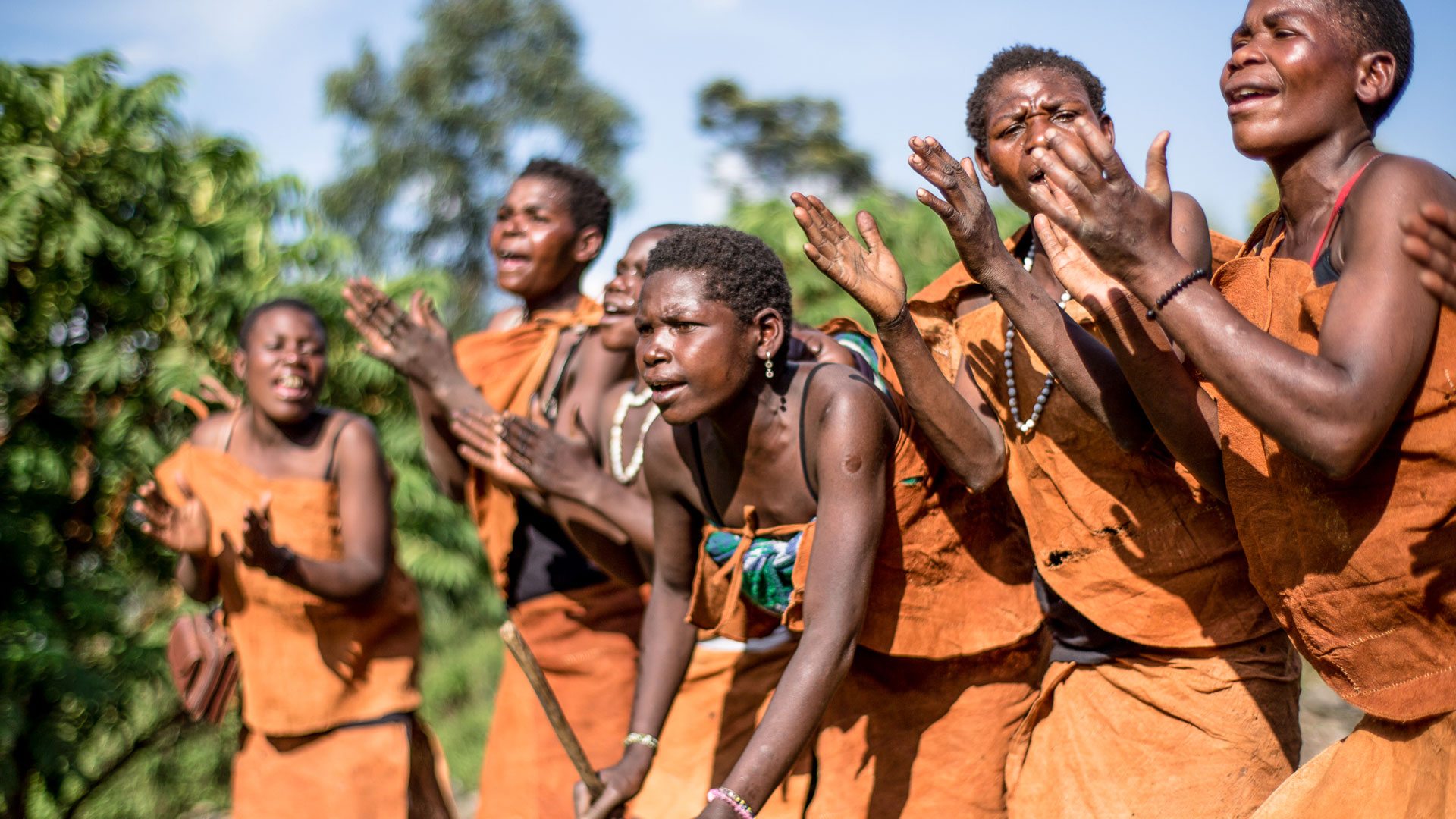
Discovering the Batwa Cultural Trail in Bwindi: A Uganda Safari Adventure
Discovering the Batwa Cultural Trail in Bwindi: A Uganda Safari Adventure. Nestled within the lush, verdant confines of Bwindi Impenetrable Forest. The Batwa Cultural Trail offers an unparalleled glimpse into the rich heritage and traditional lifestyle of the Batwa people. This unique experience is an integral part of any Uganda safari. Providing not only a fascinating cultural immersion but also a deep connection with the ancient forest that the Batwa call home. As we embark on this journey, let us delve into the history, daily life, and traditions of the Batwa. Thus offering a comprehensive guide to what travelers can expect from this extraordinary adventure.

A Journey Back in Time: The History of the Batwa
To truly appreciate the Batwa Cultural Trail, it is essential to understand the historical context of the Batwa people. Often referred to as pygmies, the Batwa are one of the oldest indigenous tribes in Africa, with a history stretching back thousands of years. Traditionally, the Batwa were hunter-gatherers, living in harmony with the dense forests of the Great Lakes region. They relied on the forest for sustenance, utilizing their deep knowledge of plants, animals, and natural medicines.
However, in the early 1990s, the establishment of Bwindi Impenetrable National Park and Mgahinga Gorilla National Park to protect endangered mountain gorillas led to the displacement of the Batwa from their ancestral lands. This eviction significantly impacted their traditional way of life, forcing them to adapt to new ways of living. Despite these challenges, the Batwa have remained resilient, and the Batwa Cultural Trail is a testament to their enduring spirit and rich cultural heritage.
The Trail Experience: Stepping into Batwa Life
Beginning the Batwa Cultural Trail is like stepping into a living museum where the forest serves as both classroom and home. The trail, which is expertly guided by Batwa elders, takes visitors on a journey through various aspects of Batwa life, offering firsthand insights into their unique traditions and skills.
Firstly, visitors are introduced to the traditional Batwa homestead. These homes, constructed from materials found within the forest, are an ingenious blend of functionality and sustainability. The guide explains how each element of the home serves a purpose, from the thatched roofs to the woven walls.
Next, the trail delves into the Batwa’s hunting and gathering techniques. Demonstrations of traditional hunting methods, such as the use of bows and arrows and snares, provide a glimpse into the resourcefulness and skill required to thrive in the forest. Furthermore, visitors learn about the diverse array of plants used by the Batwa for food, medicine, and other daily needs. The Batwa’s extensive knowledge of the forest’s flora and fauna is awe-inspiring, showcasing their deep connection with nature.
Cultural Performances: Songs, Dances, and Stories
One of the most captivating aspects of the Batwa Cultural Trail is the opportunity to experience Batwa music and dance. The Batwa are renowned for their vibrant cultural performances, which are integral to their social and spiritual life. Visitors are treated to traditional songs and dances, each with its own story and significance. The rhythmic drumming, melodic singing, and energetic dancing create a mesmerizing atmosphere, transporting visitors to a time when the forest echoed with these ancient sounds.
Moreover, storytelling sessions offer a deeper understanding of Batwa folklore and mythology. Elders share tales passed down through generations, weaving narratives that explain natural phenomena, impart moral lessons, and celebrate Batwa heroes and deities. These stories are not only entertaining but also serve as a vital means of preserving Batwa culture and knowledge.
Learning Traditional Skills: A Hands-On Experience
The Batwa Cultural Trail is not merely a passive experience; it encourages active participation and learning. Visitors are invited to try their hand at various traditional skills, guided by Batwa experts. For instance, learning to make fire using traditional methods, such as rubbing sticks together or striking stones, provides a profound appreciation for the ingenuity and resilience of the Batwa.
Additionally, visitors can partake in craft-making sessions, creating items like baskets, mats, and pottery using techniques perfected over centuries. These hands-on activities offer a tangible connection to Batwa heritage and a unique souvenir to take home.

The Significance of the Batwa Cultural Trail
Beyond its educational and entertainment value, the Batwa Cultural Trail plays a crucial role in supporting the Batwa community. Proceeds from the trail directly benefit the Batwa, helping to fund community projects, healthcare, and education. This sustainable tourism model ensures that the Batwa can preserve their culture and improve their quality of life while sharing their heritage with the world.
Furthermore, the trail fosters greater understanding and respect for indigenous cultures. By engaging with the Batwa and learning about their history and traditions, visitors gain a deeper appreciation for the diversity and richness of human heritage. This cultural exchange promotes empathy and global solidarity, underscoring the importance of protecting indigenous rights and preserving cultural diversity.
Conclusion: A Journey Worth Taking
In conclusion, the Batwa Cultural Trail in Bwindi is a captivating and enriching experience that should not be missed on any Uganda safari. From exploring traditional Batwa homesteads and learning ancient hunting techniques to enjoying vibrant cultural performances and participating in hands-on craft-making. The trail offers a comprehensive and immersive journey into Batwa life. As visitors walk the trail, they not only witness the resilience and ingenuity of the Batwa but also contribute to the preservation and celebration of their unique heritage.
As you plan your next adventure, consider embarking on the Batwa Cultural Trail. It is a journey that promises to leave you with lasting memories. A deeper understanding of one of Africa’s oldest indigenous tribes, and a profound appreciation for the cultural tapestry that enriches our world.
Related Posts;






